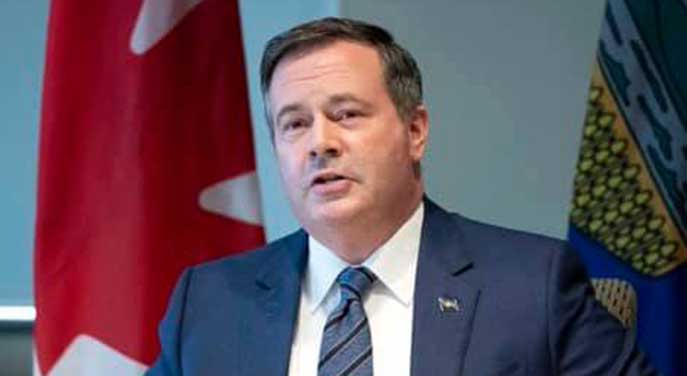 Under the backdrop of rising provincial oil revenues, Alberta Premier Jason Kenney’s speech to the Alberta Municipal Leaders caucus in March and the debate around it mark the start of what will be the dominating discussion in provincial politics from now until the election.
Under the backdrop of rising provincial oil revenues, Alberta Premier Jason Kenney’s speech to the Alberta Municipal Leaders caucus in March and the debate around it mark the start of what will be the dominating discussion in provincial politics from now until the election.
The question is, what do we do with this new revenue? Spend it, or save it?
Next year’s provincial budget predicates an oil price of $70 a barrel. This month prices are well over $100 a barrel. The difference could mean billions more in extra revenue. Finance Minister Travis Toews said that every one-dollar annual increase in oil over $70 is worth approximately $500 million in extra revenue.
Kenney laid down his position in front of 300 cash-hungry municipal leaders, telling them there would be no spending spree. He was quickly followed by the opposition New Democrats who promised more money, and mayors like Edmonton’s Amarjeet Sohi who said he wants the premier to reconsider, citing a long wish list of things he wants the province to fund.
Kenney’s ability to stand firm against those who can’t be satisfied, however much is spent, could define whether Alberta sets itself on a long-term sustainable path or goes back to wrestling with high costs that it can’t afford.
Successive governments under various premiers and political parties dramatically increased spending to unsustainable levels. Between 2004 and 2018, spending increased by 144 per cent or 9.2 per cent each year. Alberta’s per capita spending was the highest among comparative provinces. For many of those years, oil revenues remained high and politicians still spent hundreds of millions they didn’t have.
Alberta is Canada’s wealthiest province, yet it has only tabled a balanced budget twice in the past 15 years – a miserable record.
Year after year of adding more spending was bad enough, but when trouble hit with low oil prices, the pandemic and a sluggish economy in 2015, the fiscal situation got even worse.
But things are turning around. Kenney introduced a balanced budget this February prior to oil prices skyrocketing. Government expenses, previously growing by leaps and bounds, have now been held down to a 1.2 per cent jump per year during the UCP’s term in office.
Notwithstanding the many pleas to the contrary, ramping up spending now would be a mistake. It would add costs that would force us back into deficit when the oil prices eventually decline.
Instead, the government should take the extra revenues and pay off the debt.
Paying off debt lowers interest payments and frees up money for services or tax reductions.
It also prevents politicians from spending the extra money on goodies we won’t be able to afford when oil prices come back down.
In 1999, former Premier Ralph Klein faced pressure to abandon debt repayment and instead spend the surplus money, much like Kenney faces today. Klein took action. He brought in the Fiscal Responsibility Act, which forced the government to put 75 per cent of all surplus dollars towards the debt.
Kenney’s tough words on spending are welcome, but it’s time to go further and legislate debt reduction. Taxpayers have heard politicians say before that they were going to control spending only to see money wasted. Legislating debt repayment ensures this time it actually happens. But maybe the most persuasive argument for a law is it sends a signal to other politicians and special interest groups that the extra money is spoken for.
Alberta needs to seize this opportunity; as history has shown, it may not last.
Kevin Lacey is the Alberta Director with the Canadian Taxpayers Federation.
Kevin is a Troy Media Thought Leader. For interview requests, click here.
The opinions expressed by our columnists and contributors are theirs alone and do not inherently or expressly reflect the views of our publication.
© Troy Media
Troy Media is an editorial content provider to media outlets and its own hosted community news outlets across Canada.


